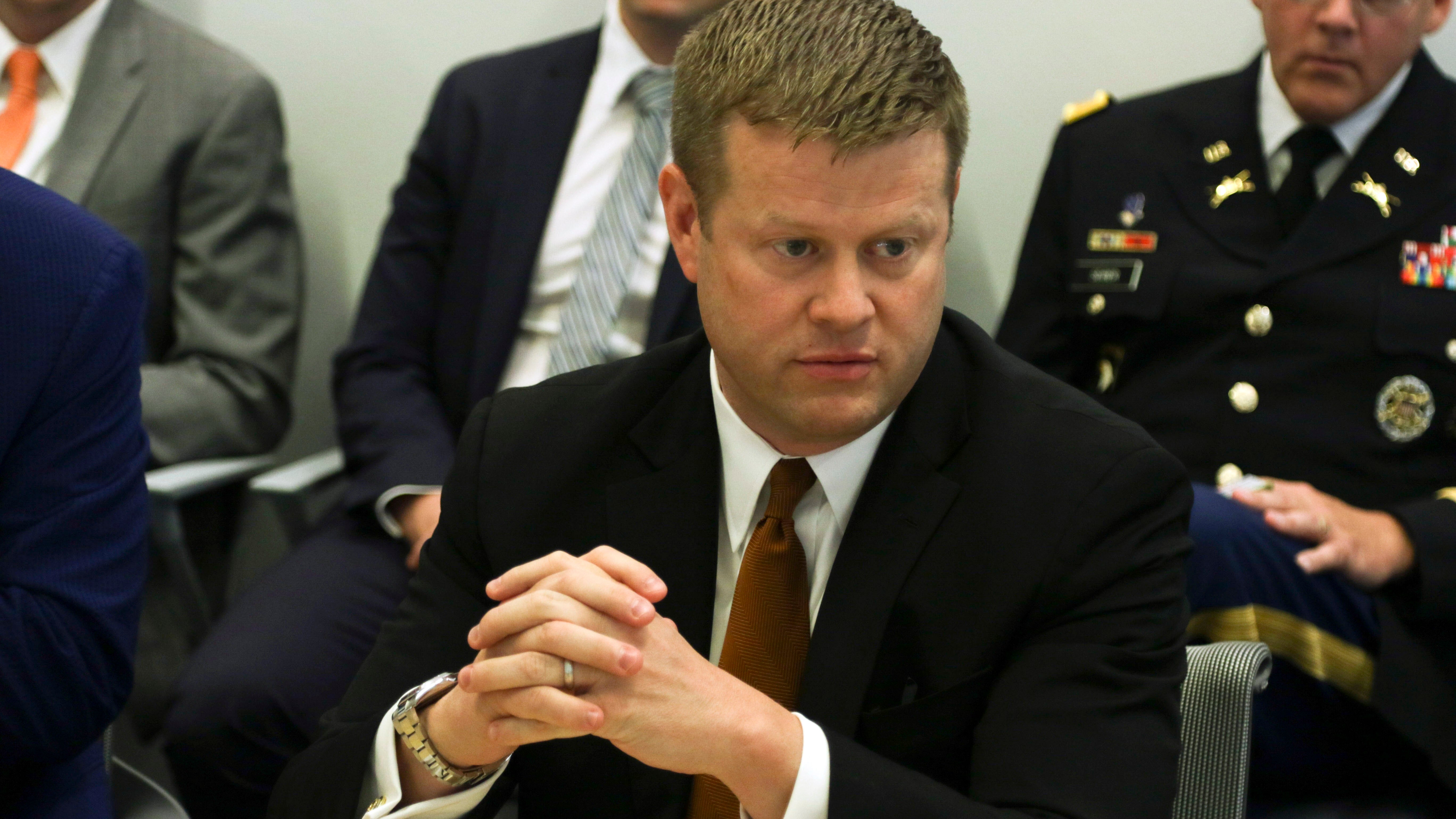McCarthy Promises Continued Focus on Soldiers, Reform
McCarthy Promises Continued Focus on Soldiers, Reform

Ryan McCarthy told a Senate committee that he will continue the push for improved readiness, rapid modernization and overall reform if he’s confirmed to be the 24th secretary of the Army.
Appearing Sept. 12 before the Senate Armed Services Committee as it considers his nomination, McCarthy has already served as the Army’s civilian leader several times since his unanimous confirmation in 2017 to be the service’s undersecretary.
McCarthy is an Afghanistan combat veteran who served with the 75th Ranger Regiment. “Troops deployed in combat operations will remain my primary focus,” he promised, noting that 18 years ago he was preparing for his first combat tour.
People are another priority, he said as he spoke of ensuring soldiers and their families “have the resources to thrive.” For him, that means quality and safe housing, reliable health care and access to childcare. “Taking care of the force leads to a better quality of life, retention of world-class soldiers and, ultimately, improved readiness,” he said.
Global demand for the Army remains high, he said, requiring maintaining warfighting readiness across the total force.
Reform has been a major Army effort, with the centerpiece being the creation of Army Futures Command and a new, streamlined path to modernization.
McCarthy said this would continue if he’s confirmed. “The Army leadership team will continue to build upon the reform agenda we established over the last 24 months,” he said. “Significant work remains to solidify the modernization enterprise and finish what we collectively started.”
In written answers to questions from the committee, McCarthy said he is concerned about Army resources.
“I believe the current end strength levels are insufficient to meet national defense objectives,” he wrote. “I am concerned about the Army’s ability to defeat a near-peer adversary while nearly simultaneously denying the objectives of another, defending the homeland, and sustaining counter terrorism efforts.”
The Regular Army needs to grow, and so should the Army National Guard and Army Reserve, he wrote, suggesting a force of 1.15 million soldiers is required. He endorsed the current slow rate of growth of about 2,000 additional soldiers a year to ultimately reach a Regular Army troop level of 500,000.
The difficulty remains finding service-aged youths who are qualified and interested in military service, he said. “I am currently exploring and, if confirmed, will continue to explore initiatives to broaden the potential pool of Army recruits,” he said.
The Army is considering a pilot program that would take in a small group of recruits who “slightly exceed body fat standards” and another pilot program that would use personality testing to determine who is suitable for military service.
As a chief advocate for creating Army Futures Command and the reorganization of the weapons development and procurement processes, McCarthy told the committee there has been progress but there is also more to do.
“In the last two years, the Army has implemented a dramatic restructuring of its modernization enterprise to bring unity of effort and unity of command under one roof,” he said. “In just 18 months, we have decreased the cycle time to develop requirements by years for complex weapon systems.”
If confirmed, he promised to make certain reform efforts continue.

